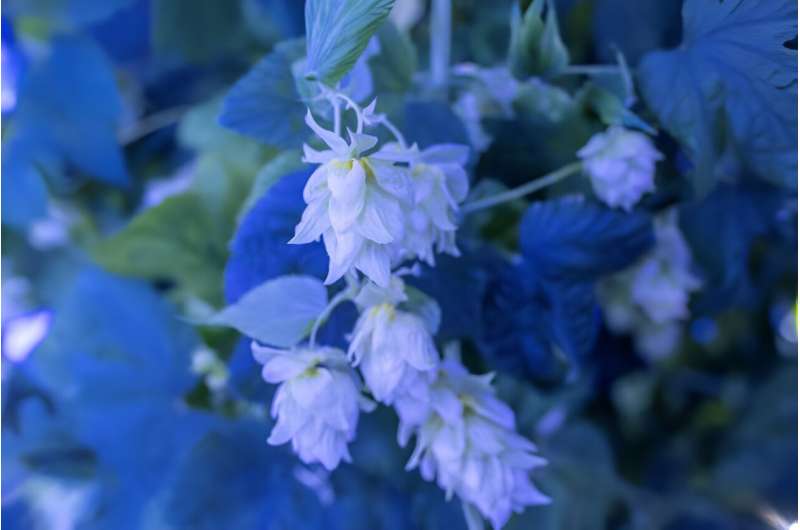In the heart of northwestern Spain, amidst freezing temperatures and foggy mornings, a unique agricultural endeavor is underway. Inside a warehouse, bathed in balmy warmth and artificial LED lights, a Spanish startup called Ekonoke is revolutionizing hop cultivation. Their innovative approach aims to address the challenges posed by climate change, ensuring a stable supply of this vital ingredient for the beer industry. This article explores how hi-tech hops are being grown indoors to combat the effects of climate change on traditional hop farming.
The Importance of Hops in Brewing: Hops, the delicate papery flowers of the hop plant, play a crucial role in brewing beer. They impart both aroma and bitterness, contributing to the unique flavor profile of each brew. However, traditional hop farming is facing significant challenges due to climate change. Rising temperatures and erratic weather patterns have made hop cultivation increasingly unpredictable, threatening the quality and availability of this essential ingredient.
Ekonoke’s Innovative Approach: Ekonoke, a Spanish startup, has developed a groundbreaking method for cultivating hops indoors. Their indoor farming project utilizes advanced technology to create optimal growing conditions for hop plants. Mounted on a sophisticated grid system of cables and wires, the hop plants thrive under carefully controlled environments, free from the uncertainties of outdoor farming.
Hydroponics and Controlled Environments: At Ekonoke’s warehouse in Galicia, hops are grown hydroponically, without soil, using a closed-loop system that conserves water and minimizes pesticide use. LED lights mimic the natural sunlight, providing the plants with the necessary energy for photosynthesis. By meticulously monitoring factors such as lighting, temperature, and nutrient levels, Ekonoke has been able to halve the growth cycle of hop plants, ensuring a steady supply year-round.
Benefits and Challenges: The benefits of Ekonoke’s hi-tech hops are manifold. Breweries, such as Estrella Galicia, have recognized the importance of a stable and high-quality hop supply and have invested in Ekonoke’s innovative approach. By reducing water usage and pesticide dependency, indoor farming also addresses environmental concerns associated with traditional agriculture. However, scaling up production to meet market demands remains a challenge, as acknowledged by experts.
Despite the challenges, Ekonoke is optimistic about the future of indoor hop cultivation. Their pilot farm in Chantada is just the beginning, with plans to expand to a full-scale industrial facility in the coming years. By leveraging science and technology, Ekonoke aims to safeguard hop biodiversity and develop new hybrid varieties that are resilient to climate change. Ultimately, their mission is not to replace traditional hop farming but to complement it and mitigate the threats posed by climate change.
The story of Ekonoke and their hi-tech hops underscores the importance of innovation in addressing the challenges of climate change in agriculture. By embracing technology and sustainability, they have charted a path towards a more resilient and reliable hop supply chain. As breweries and consumers alike demand high-quality and environmentally responsible ingredients, initiatives like Ekonoke’s indoor hop farming offer a promising solution for the future of beer production.
